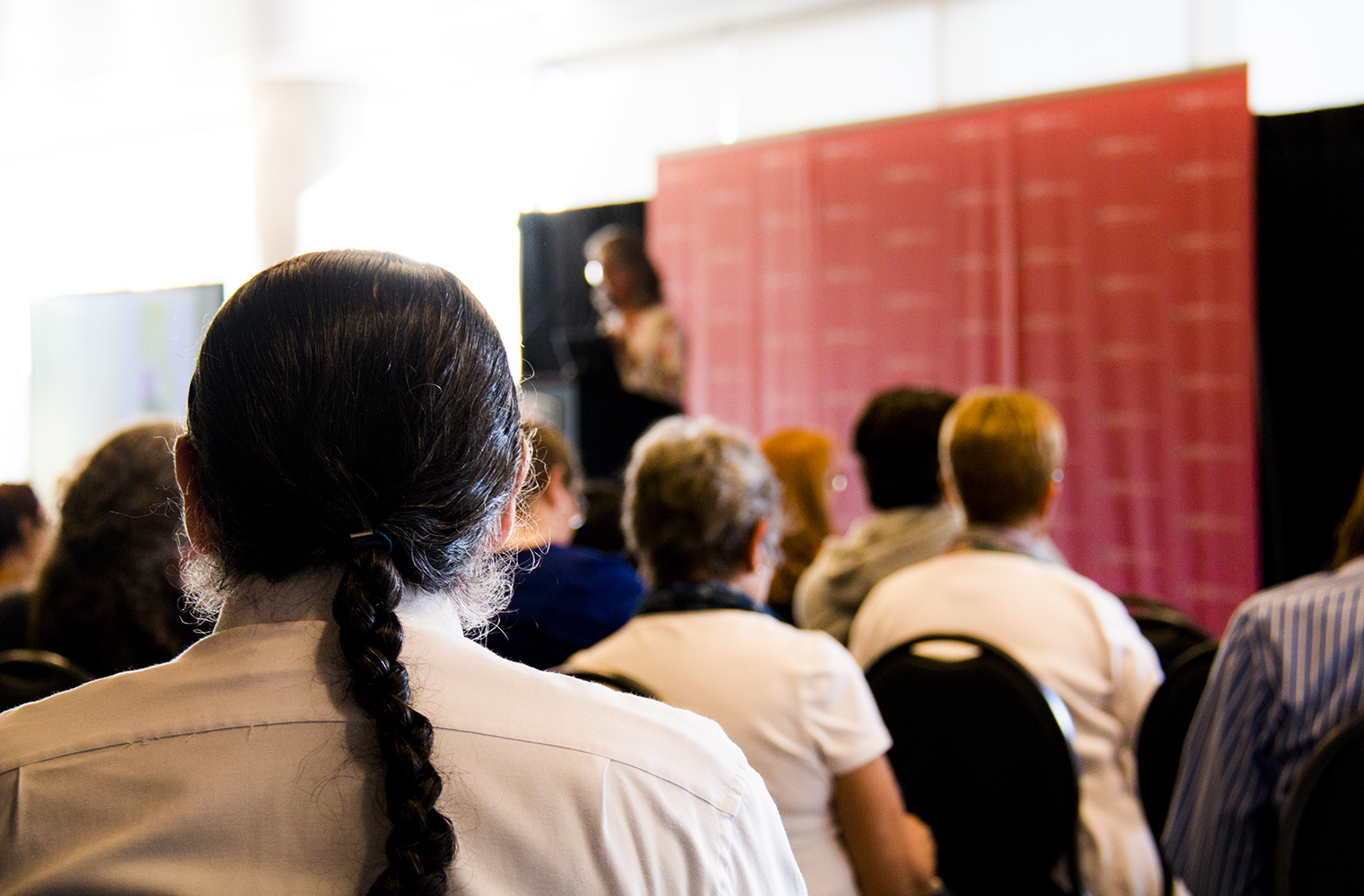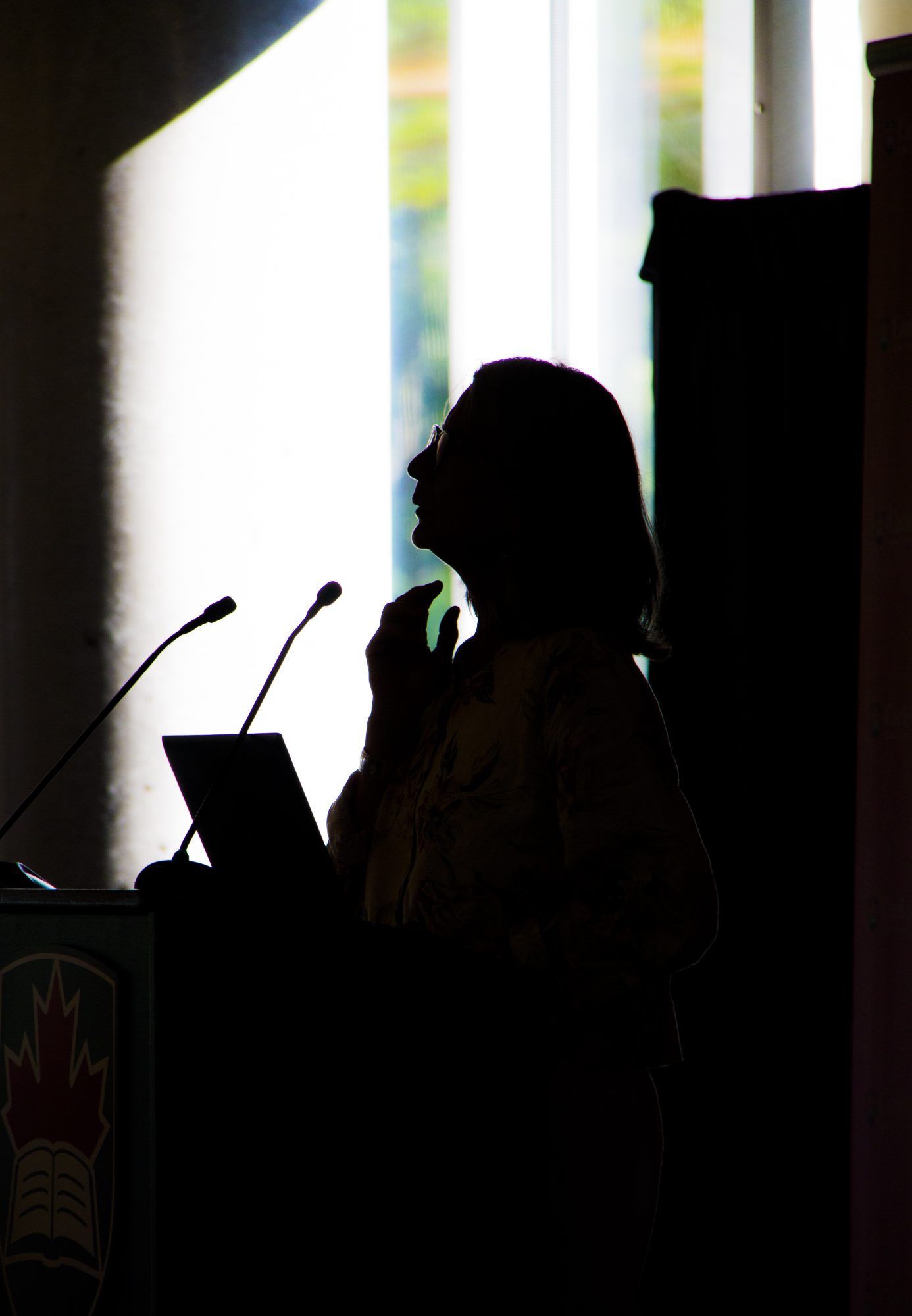
“As long as it’s not recognized as real law by Indigenous and non-indigenous people or not treated as an intelligent resource for problem-solving, we will be perpetuating the myth that Indigenous people are lawless …and the only thing available to us is Canadian law.” –Val Napoleon
That argument for the legitimacy of indigenous legal systems was at the heart of Val Napoleon’s message to Carleton University students and faculty as she delivered the Katherine A.H. Graham Lecture on Aboriginal Policy on June 11th.
Napoleon, the Law Foundation Professor of Aboriginal Justice and Governance at the University of Victoria, says the suppression of Indigenous law caused it to be undermined and invisible over time.
In her talk, Napoleon described a “neo-liberal grid of intelligibility” within Canadian society that depicts indigenous people and their legal systems in a way that aligns with Western beliefs and values.
She said this provides an incomplete picture of what really happens in Indigenous communities.
“We have to question this interpretation and build a new grid where indigenous law is taken seriously as law,” said Napoleon. “At the same time, the people within indigenous society have to be self-determining in order for the law to be active.”
Napoleon and her colleagues are working to revive Indigenous laws dealing with universal human problems such as lands and resources, justice, harms and injuries, and child welfare. Their method has been adopted by groups in countries including New Zealand and Peru.
Each June, The Katherine A.H. Graham Lecture on Aboriginal Policy is held to honour Katherine Graham, who served as Dean of Public Affairs from 2003-2009. The lecture provides a vehicle for examining a wide range of policy issues, cases, models and tools related to First Nations, Métis and Inuit communities across Canada.
Monday, June 15, 2015 in Katherine Graham Lecture, News
Share: Twitter, Facebook



